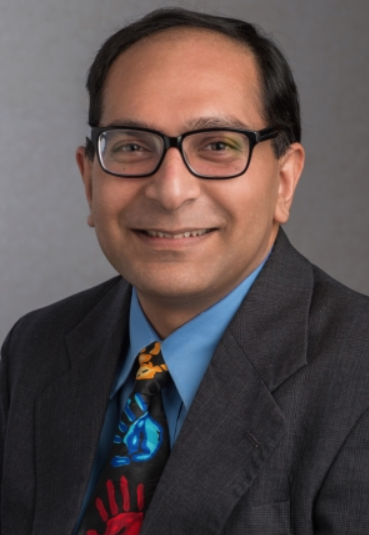
Dr. Neelkamal "Neel" Soares leaves little doubt when he talks about the type of impact a three-year fellowship in Developmental-Behavioral Pediatrics at the University of Maryland had on him.
It changed his life, he says, and set in place his career path in medicine.
"I think the key is having great mentors who guide you,"Dr. Soares said. "As a resident, as you're searching for your niche, I was fortunate to have mentors who opened the world of Developmental-Behavioral Pediatrics to me and I never looked back; The (fellowship was) the best three years of my life.
"I always credit it with making me who I am today."
In February, Dr. Soares became a member of the faculty in WMed's Department of Pediatric and Adolescent Medicine. In his role, he is leading the department's new Division of Developmental-Behavioral Pediatrics.
Dr. Soares, 45, a native of India, earned his MD degree in 1995 from Lokmanya Tilak Municipal Medical College in Mumbai. Later, he completed a three-year residency in Pediatrics at the University of Illinois at Chicago, followed by his fellowship at the University of Maryland. And, more recently, before coming to WMed, he worked for an integrated health system in central Pennsylvania and was a member of the faculty at Bucknell University.
Several members of Dr. Soares' extended family are physicians and his father was a family medicine practitioner. Dr. Soares said he has many memories of watching as patients and their families would come for treatment at his father's medical office, which was attached to the family's home in Mumbai.
Dr. Soares' decision to come to WMed, he said, stemmed from his long-standing relationship and collaboration with Dr. Dilip Patel, chair of the medical school's Department of Pediatric and Adolescent Medicine.
"He enlightened me about the tremendous opportunities that WMed was pursuing in innovation and education," Dr. Soares said. "When I came here to visit, I saw it for myself" the opportunity to guide trainees, but also to serve."
Dr. Soares said he is excited about the opportunity "to contribute to the blueprint"of WMed and the chance to grow the Division of Developmental-Behavioral Pediatrics into something that will be an asset for the medical school and the community with a focus on addressing what he says is a growing need for the subspecialty.
Developmental-Behavioral Pediatrics has existed since the 1960s but wasn't recognized as a subspecialty of Pediatrics until the 1990s, Dr. Soares said. Board certification began in 2002, the same year Dr. Soares completed his fellowship in Baltimore.
Today, there are more than 800 board certified Developmental-Behavior Pediatrics physicians in the country. Dr. Soares said he and other physicians like him are tasked with providing care to a growing number of children with developmental disabilities and behavioral issues while also providing guidance to general pediatricians on the diagnosis and care of those children.
"The key is the large numbers of these children, the time-limited training of general practitioners in a specialized field that requires knowledge of not only medicine, but psychology, genetics, school systems and other support services,"he said. "The interdisciplinary approach that we take has become almost a standard in every field."
As he settles in at WMed, Dr. Soares said he hopes his arrival in Kalamazoo will improve care for children who are in need of a doctor specializing in Developmental-Behavioral Pediatrics.
Additionally, he said resident physicians and students at WMed will be able to become more familiar with patient care in Developmental-Behavioral Pediatrics and receive ongoing training during their time in Kalamazoo.
"Our aim is to make our practitioners, our students, our trainees - when they go out in practice - more comfortable so they can address the needs of these patients and families," Dr. Soares said. "As students decide to join the field, that's a win; I want to put myself out of business by making our residents good enough to do what I do."
Given his expertise in telemedicine, Dr. Soares envisions the use of telemedicine in the future at WMed, a practice that he says makes care more local and convenient for patients.
"The hope is that we can develop innovative products and processes that benefit children and families,"Dr. Soares said. "There's no point in research if it does not make life better for the patient and their family."
